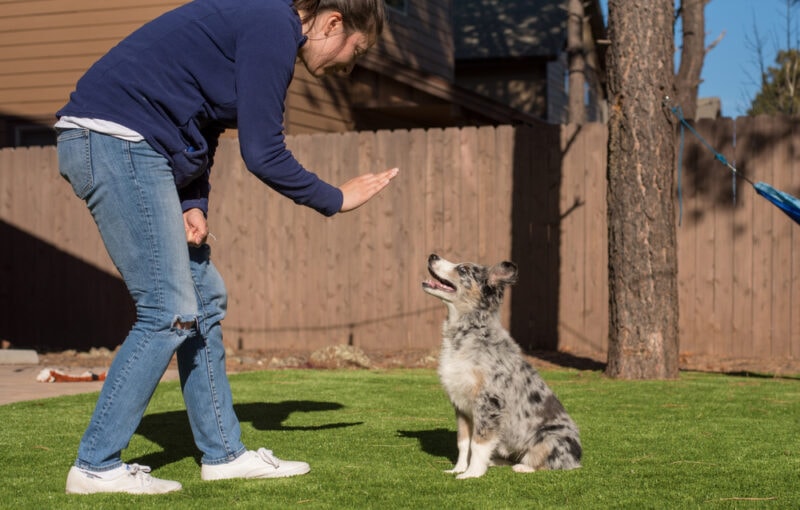
If you have ever owned a dog that exhibited negative behaviors, you know how important it is for them to learn and respond to a particular command. Not only is it annoying when a dog is engaging in negative behavior and will not listen, but it is also dangerous for your pet to not respond to a “no” command in a life-threatening or dangerous situation.
So, to keep your sanity and keep your dog safe, here is a step-by-step guide to teach your dog the “no” command.
How to Teach a Dog No
1. Use a Pedestal
To teach your dog the “no” command will require using some type of pedestal. To prevent the dog from being able to reach you or the treats, anchor the leash behind the dog. You want to be in proximity to the dog, but it should not be able to reach you.
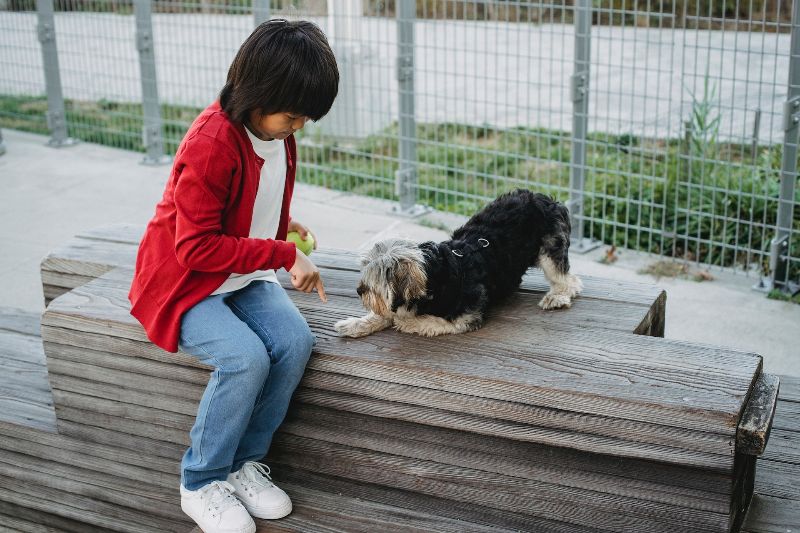
2. Use the “No” Command
Using the treats, tell the dog “No” when it reaches for the treat. Repeat the “no” command each time the dog tries to go for the treat.
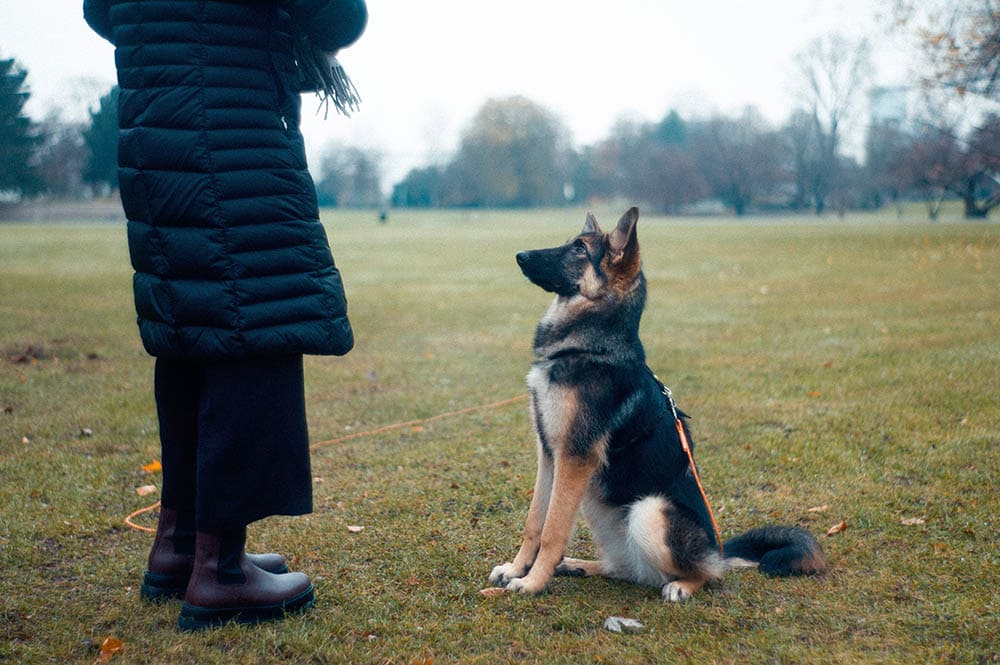
3. Wait and Release
Eventually, the dog should stop reaching for the treat. Once it does, wait about five to seven seconds, and give it a treat. To release the treat, say “Okay!” as you give the dog the treat. Do not give the dog the treat from the pedestal; it should come from your hand.
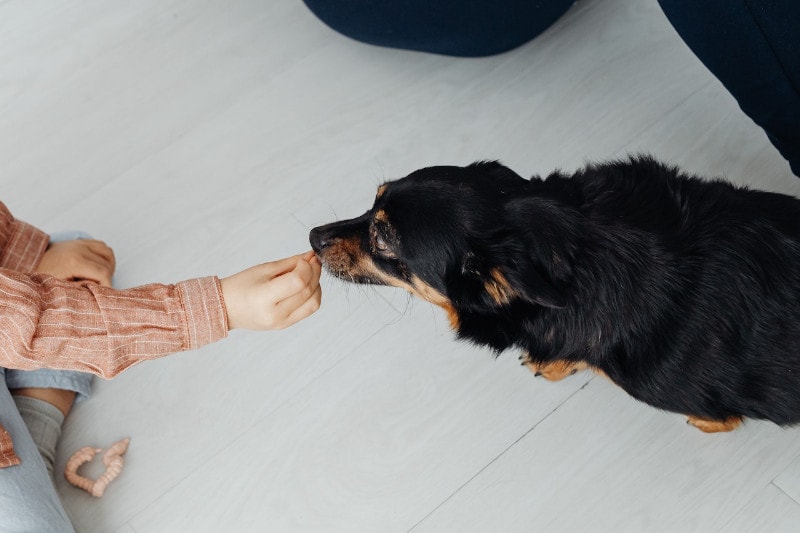
4. More Treats and Positive Reinforcement
Once your dog knows what is expected of it, up the ante. Take about four or five treats and place them in front of the dog one at a time. When doing so, say “no” as you are setting them on the pedestal. If the dog remains calm for the allotted time, pick up the treats that you placed on the pedestal and feed them to the dog from your hand.
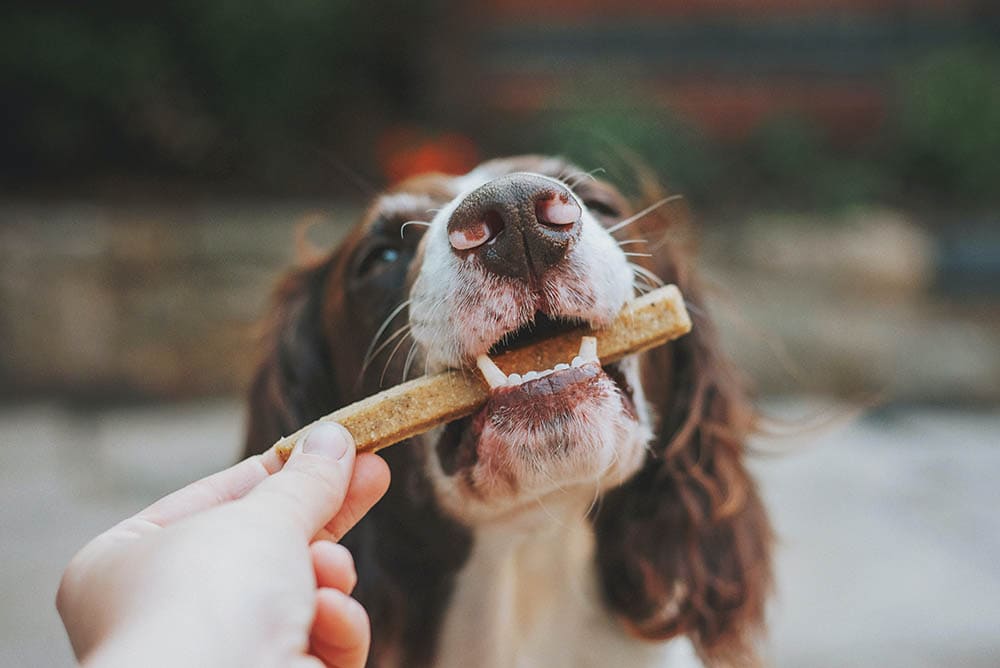
5. Move the Treats Closer to the Dog
As the dog gets better, start placing the treats where it can reach them. Make sure that it is not too easy for the dog to grab the treat.

6. Use a Verbal Cue
If your dog attempts to take the treats, try using a voice command to stop it. You should not depend on the anchor leash. To distract the dog from the treat, tap your fingers on the pedestal as you say the command.
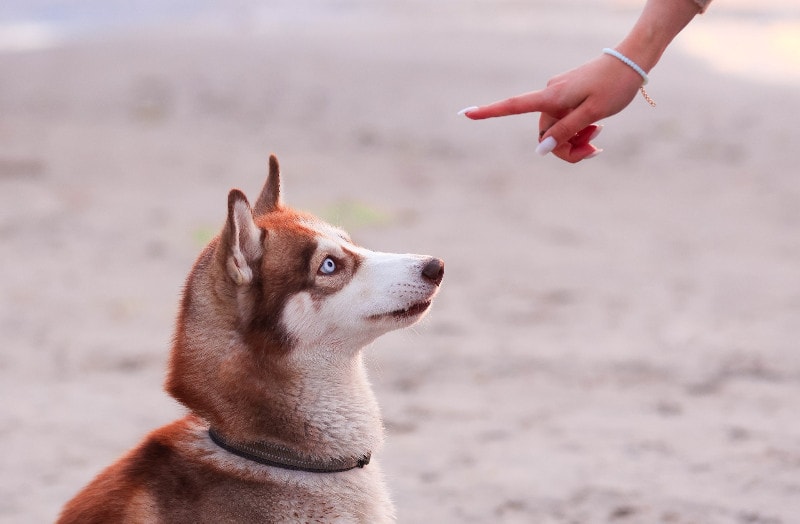
7. Up the Ante
Now you can move the treats closer to the dog. This will give the dog some “motivation” to respond to your commands as they now see their reward.

8. Test the Dog’s Restraint
If the dog has progressed and learned the pedestal technique, move the treats to the ground without a restraint. Test the dog by putting treats all around it and use the “no” command to keep it from taking the treats. If your dog does not listen, go back to the pedestal, and start from the beginning.
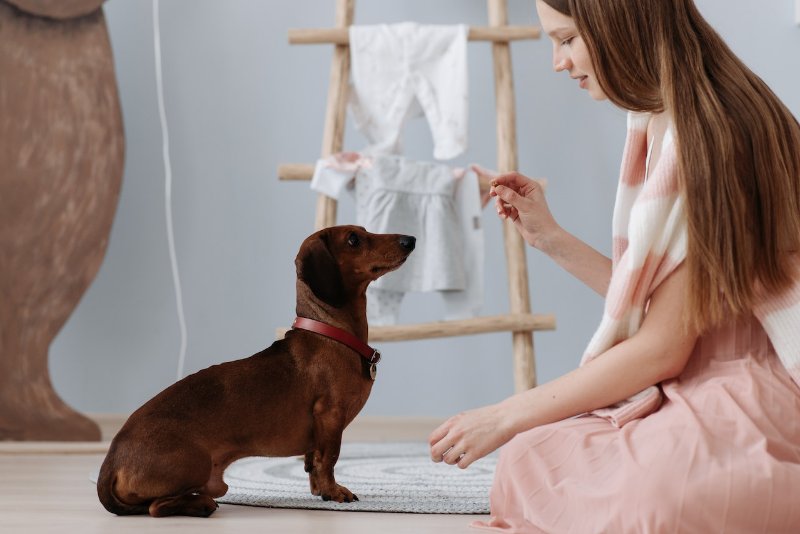
9. Don’t go too Fast
Dogs learn at their own pace. Give your canine the time it needs to understand and learn what you expect from it.

Conclusion
We hope this article has given you some ideas on how to train your dog the word “no”. No matter how long it takes to teach your dog the “No” command, it is important to take your time and be patient. Allow the time you are spending with your dog to create a positive and healthy bond for you and your pet.
Featured Image Credit: Anna Shvets, Pexels






